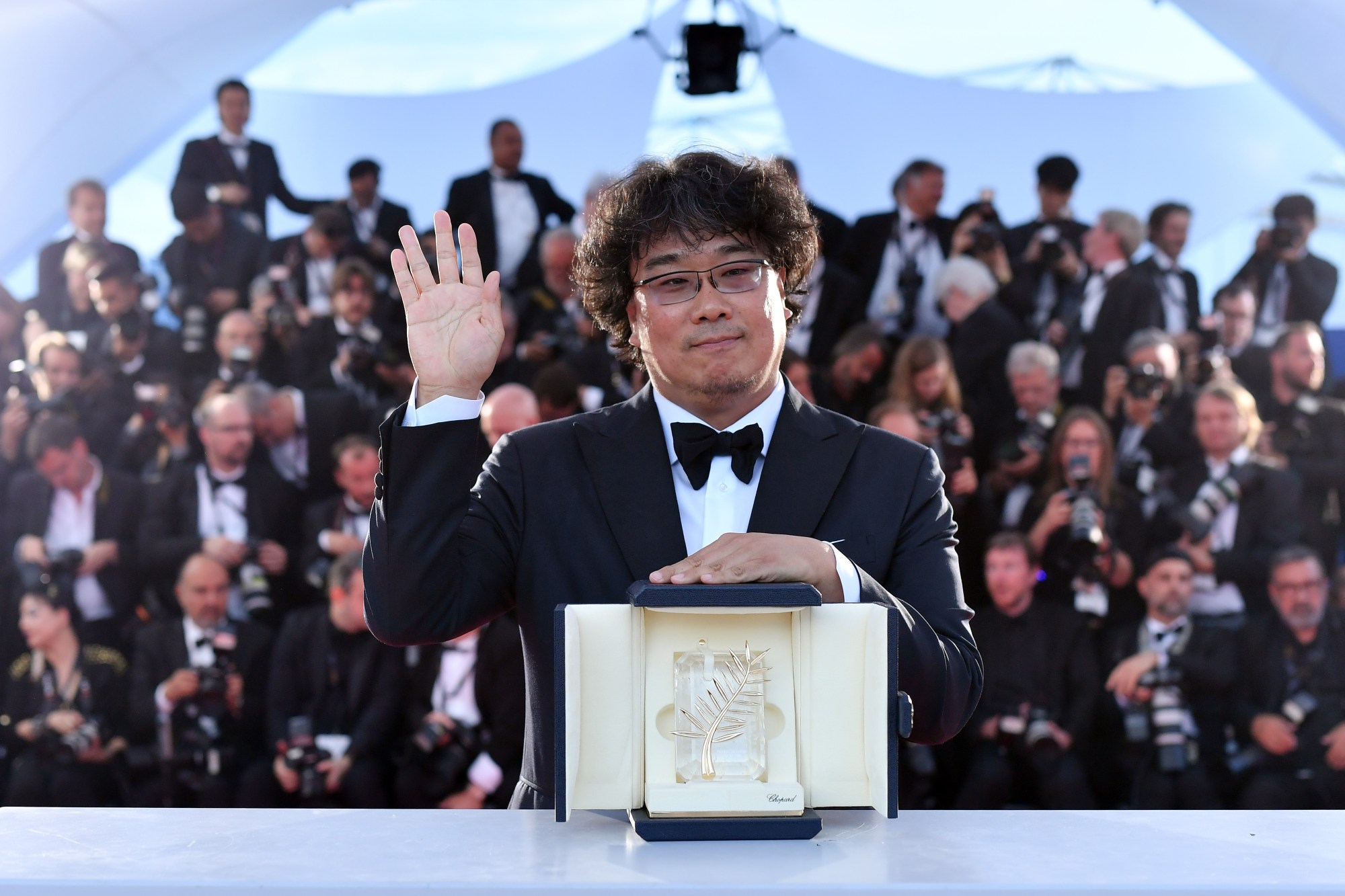
- Festivals
Cannes 2019: South Korea Takes the Palme d’Or
The 72nd Cannes Film festival had lots of big names: Tarantino, Almodovar, Malick. In the end, Alejandro González Iñarritu’s jury opted for the smaller names, women, and the issues of poverty, displacement, and inequality.
Not that South Korea’s Joon-ho Bong is small – he’s a four-time winner of the Busan Film Critic Association and a five-time nominee at Cannes. And, this year, he led the pack, taking the Palme d’Or – the first for his country- for Parasite, the story of a poor family who gets entangled with a wealthy clan.
The Grand Prix went to Cannes’ first black female filmmaker in the history ofthe festival – Mati Diop and her Atlantics, which focuses on the broken lives of refugees. The Jury Prize was a tie between Ladj Li’s Les Misérables – another take on the plight of displacement and what awaits refugees on the outskirts of big European cities, like Paris – and Kleber Mendonça Filho and Juliano Dornelles’ Bacurau, a dystopian thriller about hunting poor humans for sport.
Brazil had a particularly good year on the Croisette, with Karim Aïnouz taking the best film award at Un Certain Regard for his The Invisible Life of Eurídice Gusmão, and the Mendonça-Dornelles duo scooping the Jury prize – a bright, encouraging moment in a dark time for arts and culture in the country, under the new administration. Presenting a tie for the jury prize, filmmaker Michael Moore told the crowd, “Trump is the lie that enables more lying.”
The acting awards went to Little Joe’s Emily Beecham and Pain and Glory’s Antonio Banderas. Banderas dedicated his award to Almodóvar, saying ‘People think we live in a red carpet, but it’s not true. We suffer a lot, we sacrifice, and there is a lot of pain behind an actor of any kind. But there is also glory, and this is my night of glory,”
Writer-director Céline Sciamma received the screenplay award for Portrait of a Lady on Fire, which explores art through the female gaze. The director award went to Cannes darlings Jean-Pierre and Luc Dardenne for another refugee tale, Young Ahmed.
The Camera d’Or for first time director went to Guatemalan Cesar Diaz for his drama Our Mothers, about an anthropologist searching for his father in a country torn by civil war.
Iñárritu’s jury that included French author-artist-director Enki Bilal, French director Robin Campillo, Senegalese actress-director Maimouna N’Diaye, American actress Elle Fanning, Greek director Yorgos Lanthimos, Polish director Paweł Pawlikowski, American director Kelly Reichardt, and Italian director Alice Rohrwacher.
COMPETITION
Palme d’Or: Parasite, Bong Joon-ho
Grand Prix: Atlantics, Mati Diop
Director: Jean-Pierre and Luc Dardenne, Young Ahmed
Actor: Antonio Banderas, Pain and Glory
Actress: Emily Beecham, Little Joe
Jury Prize — TIE: Les Misérables, Ladj Ly; Bacurau, Kleber Mendonça Filho
Screenplay: Céline Sciamma, Portrait of a Lady on Fire
Special Mention: Elia Suleiman, It Must Be Heaven
OTHER PRIZES
Camera d’Or: Our Mothers, Cesar Diaz
Short Films Palme d’Or: The Distance Between the Sky and Us, Vasilis Kekatos
Short Films Special Mention: Monster God, Agustina San Martin
Golden Eye Documentary Prize: For Sama
Ecumenical Jury Prize: Hidden Life, Terrence Malick
Queer Palm: Portrait of a Lady on Fire, Céline Sciamma
UN CERTAIN REGARD
Un Certain Regard Award: The Invisible Life of Eurídice Gusmão, Karim Aïnouz
Jury Prize: Fire Will Come, Oliver Laxe
Best Director: Kantemir Balagov, Beanpole
Best Performance: Chiara Mastroianni, On a Magical Night
Best Screenplay: Meryem Benm’Barek, Sofia
Special Jury Prize: Albert Serra, Liberté
Special Jury Mention Joan of Arc, Bruno Dumont
Coup de Coeur Award: A Brother’s Love, Monia Chokri; The Climb, Michael Angelo Covino
DIRECTORS’ FORTNIGHT
Society of Dramatic Authors and Composers Prize: An Easy Girl, Rebecca Zlotowski
Europa Cinemas Label: Alice and the Mayor, Nicolas Parisier

